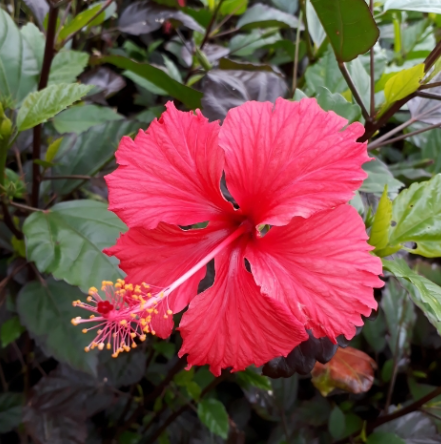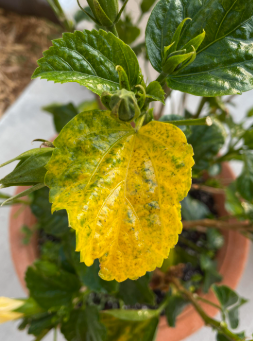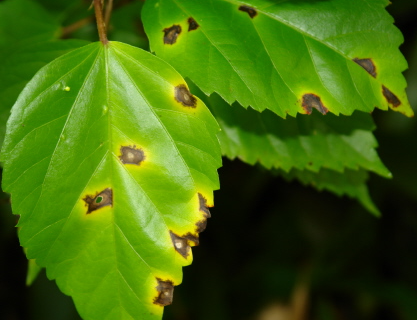Hibiscus Leaves Plant
Perennial shrub to 3 m, Hibiscus yields tart, edible leaves. Asian native, thrives in warm, sunny conditions. Used sparingly in teas, rich in antioxidants.

Habit
Perennial shrub
Height
1-3 m
Growth
Moderate
Soil
Well-drained, fertile
Shade
Full Sun
Moisture
Moderate
Edible
Yes (leaves)
Medicinal
Yes (antioxidant)
Origin
Asia
Climatic Condition
Tropical
Temperature (°)
20-35
Humidity (%)
50-70
Potting media
Loam+Compost
Fertilizers
NPK(5:10:10)
Watering
Every 3-5 days
Plant Weight
~5-15 kg
Flowering Time
Summer
Soil Ph level
6.0-7.5
Water Ph level
6.0-7.0
Soil EC
0.5-1.5 mS/cm
Yield Per Plant
~0.5-1 kg leaves
NPK ratio
5:10:10
life Span
10-20 years
Health Benefits
Vitamin C, anti-inflammatory
Suggested Grow Media or Potting Mix ?
50% loam, 30% compost, 20% sand
Suggested Fertigation/Fertilizers
5:10:10 biweekly
Common Diseases and Remedies
Powdery mildew, leaf spot, anthracnose, aphids, whiteflies, spider mites
White powdery growth on leaves, dark spots with yellow halos on leaves, brown or black lesions with fruiting bodies, sticky residue and curled leaves, small white insects on leaves, webbing and stippling on leaves
Apply neem oil or sulfur spray, remove and destroy affected leaves, improve air circulation, use insecticidal soap or neem oil, apply neem oil, apply neem oil or insecticidal soap
Fungicides with myclobutanil, fungicides with copper, fungicides with azoxystrobin, insecticides with imidacloprid, insecticides with pyrethrins, miticides with abamectin

